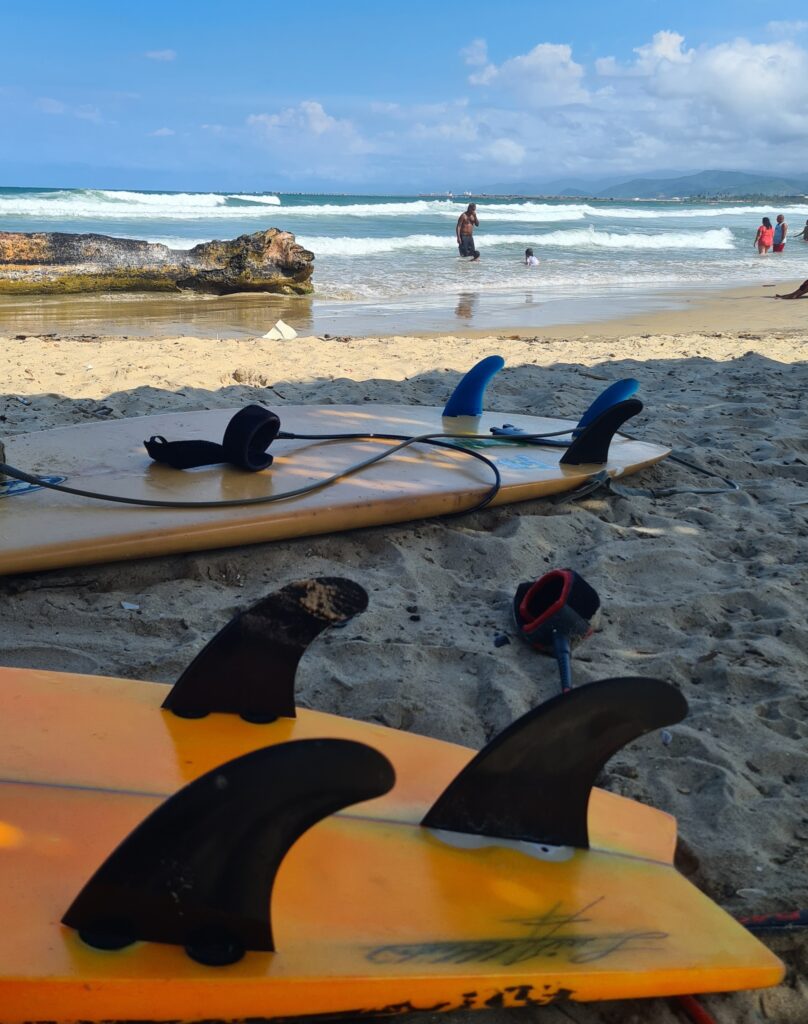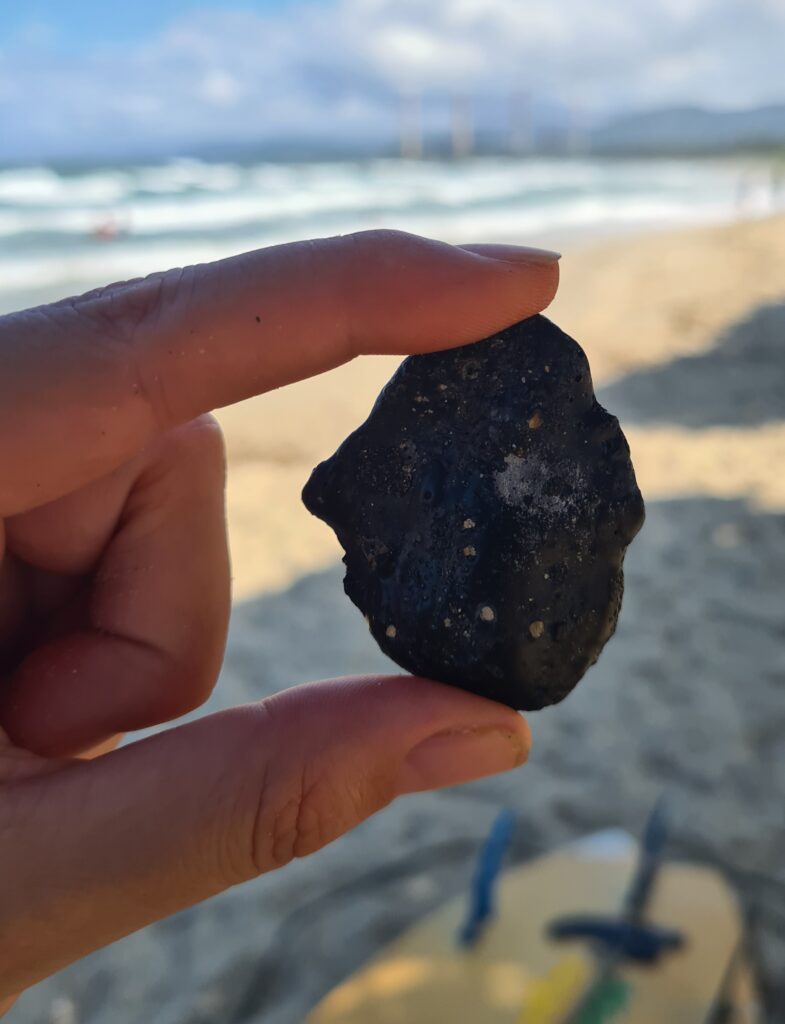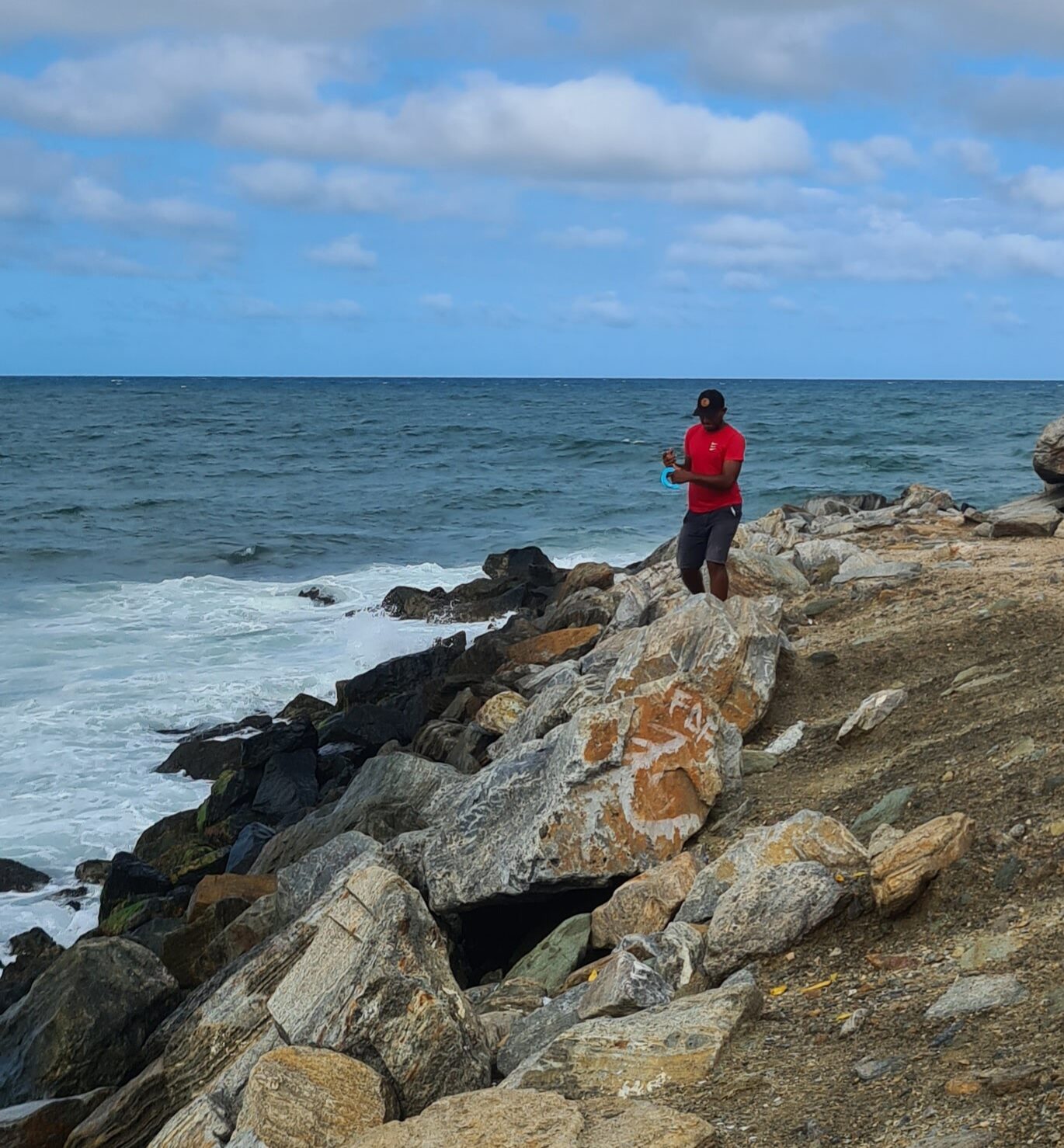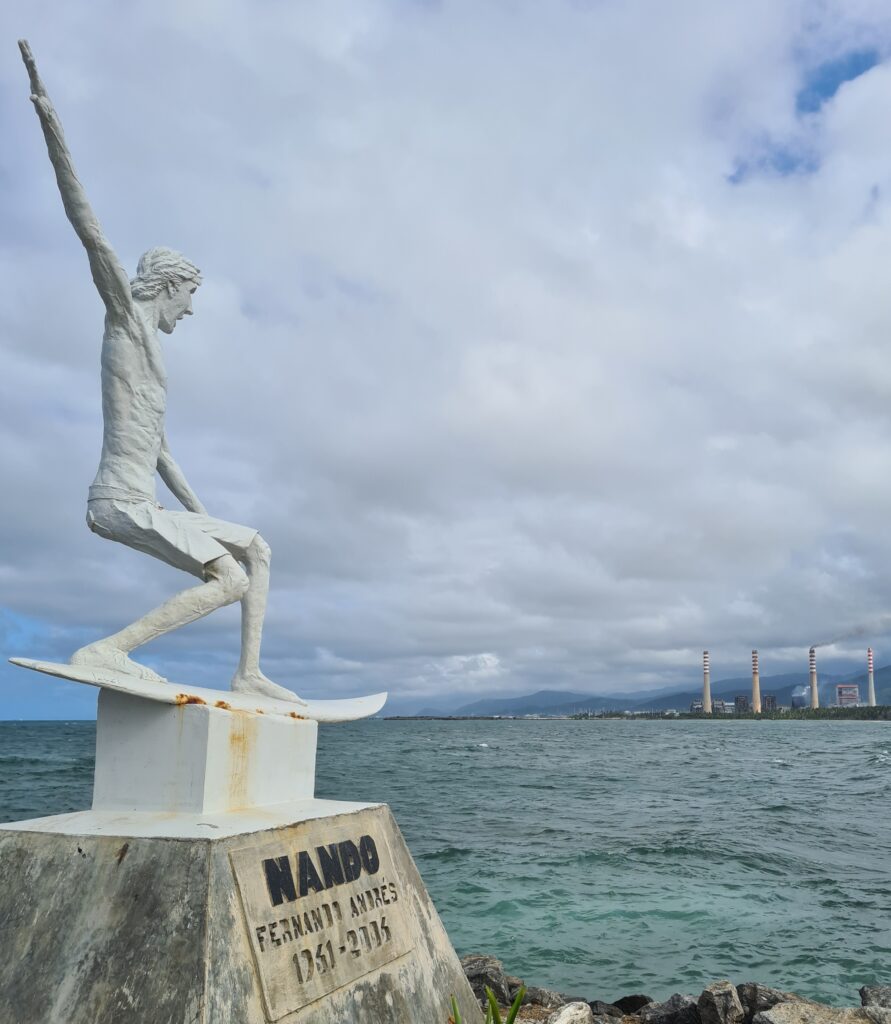Some of the most stunning Caribbean beaches lie near Valencia, one of Venezuela’s major cities. Here, locals enjoy their free days by relaxing, dancing, partying, or engaging in sports like surfing. However, alongside this natural beauty lies an industrial reality: oil refineries dotting the coastline.
The charm of some of these beaches is often overshadowed by smoke-filled horizons—and sometimes, even worse.

My Second Surf: On an Oil-Stained Beach
“Do you want to try surfing?” a friend asked.
I hesitated only for a moment before saying yes. It sounded like an adventure, and I couldn’t resist.
Once on the beach, my instructor gave me a crash course on how to stand on the board and find the right waves for beginners. Excited and determined, I paddled into the water.
After an hour of struggling to find my balance and repeatedly falling, I decided to take a break. That’s when I noticed something odd—black stains on my skin.
“What is this?” I asked my instructor.
“It’s oil,” he replied nonchalantly. “You can only remove it with more oil.”

The Black Spots and the Hidden Story
I began to notice peculiar, dark “stones” scattered across the beach.
“That’s not a stone,” my friend pointed out. “It’s solidified petrol.”
Curious, I pressed for more details.
“Five months ago, there was a massive oil spill from the refinery,” they explained. “The entire beach turned black. Many animals died, and fishing was impossible for months. The refinery used chemicals to clean the surface, but the effects linger.”
The environmental scars were evident, but the beach was slowly reclaiming its natural allure—or so it seemed.

A Fisherman’s Tale
Eager to learn more, I spoke with a local fisherman who was mending his net near the shore.
He shared stories of the beach’s recovery, proudly listing fish now returning to the waters: pardos, carite, and even hammerhead sharks. But when I asked about the spill, his expression darkened.
“The refinery isn’t well-maintained,” he confided in a hushed voice. “But we can’t say anything, or tu, tu, tu.”
“Tu, tu, tu?” I asked, puzzled.
“They’ll come after you. Jail, threats—you know how it is,” he said, his voice heavy with resignation.
His words reminded me of the silencing tactics so many Venezuelans endure. Speaking out about injustices often comes with dangerous consequences.
Reflection on Contrasts
The small village where I stayed is heartbreakingly poor. Most people work in the refinery, fish for a living, teach surfing, or take on other modest jobs. Yet, they have the beach—a simple joy that adds meaning to their lives.
The contrast between the swaying palms, the warm green waters, and the looming industrial structures left a profound mark on my traveling soul. The resilience of both the people and the environment in facing this exploitation is remarkable, but it also reveals a deeper truth.
Our lives continue, powered by cars, energy, and convenience. We indulge in the beauty of places like this, surfing and relaxing next to these realities. Yet, as humans, we often choose blindness over action.

🏄en la próxima montaras más olas,🏄
Gracias por la experiencia! Ahora en Brasil lo voy a intentar de nuevo. Te gustó el artículo?